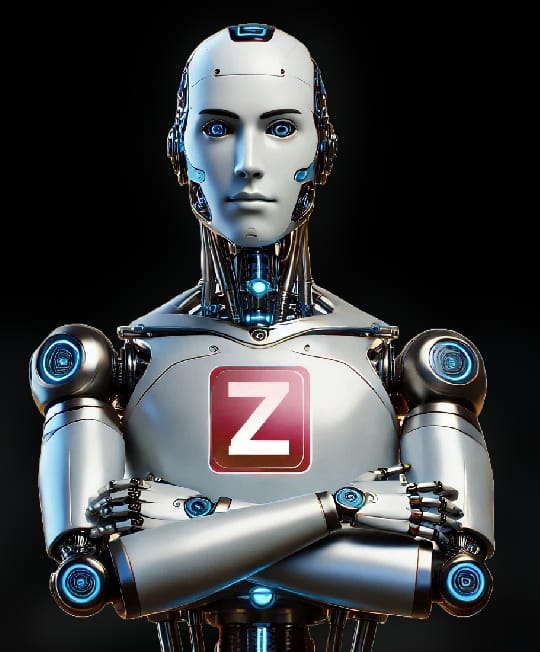Understanding Intel’s Move to AI in Marketing
There’s been some talk about Intel’s plans to use artificial intelligence in its marketing efforts. For marketers, this kind of news often brings up questions about the future of our field. While the initial headline might sound alarming, it’s helpful to look at what this really means for daytoday marketing work.
The core idea here is that Intel is exploring how AI can help with tasks that are currently done by people in marketing roles. This doesn’t necessarily mean a complete replacement of human marketers. Instead, it suggests a shift in how marketing teams operate, with AI taking on certain responsibilities.
What Kinds of Marketing Tasks Could AI Handle?
When we think about AI in marketing, it’s usually about automating processes or analyzing large amounts of data. Here are some areas where AI could play a role:
- Content Generation: AI can help create basic marketing copy, social media posts, or even product descriptions. This can free up human marketers to focus on more strategic content.
- Data Analysis: AI is very good at sifting through vast datasets to find patterns and insights. This can help marketers understand customer behavior, campaign performance, and market trends much faster than manual analysis.
- Personalization: AI can help deliver highly personalized marketing messages to individual customers based on their preferences and past interactions.
- Ad : AI can adjust ad placements, bids, and targeting in realtime to get the best results for marketing campaigns.
- Customer Service Automation: Chatbots powered by AI can handle routine customer inquiries, allowing human customer service teams to address more complex issues.
The Role of Human Marketers in an AIEnhanced World
Even with AI taking on more tasks, the need for human marketers won’t disappear. Our roles will likely change, becoming more focused on strategy, creativity, and human connection. Here’s why human marketers will remain :
- Strategy and Vision: AI can process data, but it can’t set the overall marketing strategy or define the brand’s vision. That still requires human insight and understanding of the market.
- Creativity and : While AI can generate content, true creativity, storytelling, and campaign ideas still come from human minds. AI lacks the ability to understand nuanced emotions or cultural references in the same way people do.
- Emotional Intelligence: Building relationships with customers and understanding their unspoken needs requires emotional intelligence, something AI does not possess.
- Ethical Considerations: Human marketers are needed to ensure that AIdriven marketing efforts are ethical, fair, and comply with privacy regulations. We need to oversee how AI uses data and interacts with customers.
- Problem Solving and Adaptability: When unexpected challenges arise or market conditions change , human marketers are needed to adapt strategies and find creative solutions that AI might not be programmed for.
- Brand Voice and Tone: Maintaining a consistent and authentic brand voice, especially in complex or sensitive communications, requires human oversight.
- Collaboration and Leadership: Marketing is a team effort. Human marketers are needed to lead teams, collaborate with other departments, and manage complex projects.
Preparing for the Future of Marketing
Intel’s exploration of AI in marketing is a sign of a broader trend. Marketers who want to stay relevant in this environment can focus on developing skills that complement AI capabilities.
Skills to Develop
Consider focusing on these areas:
- Data Interpretation: While AI can analyze data, human marketers need to interpret those insights and translate them into actionable strategies. Understanding data science basics can be very helpful.
- Strategic Thinking: The ability to think strategically, identify market opportunities, and plan longterm marketing initiatives will become even more important.
- Creativity and Storytelling: Honing your creative skills and ability to tell compelling brand stories will set you apart.
- Technical Proficiency: Learning how to work with AI tools, understand their limitations, and effectively leverage their capabilities will be a valuable skill. This doesn’t mean becoming a programmer, but understanding the basics of how these tools function.
- Empathy and Customer Understanding: Deeply understanding customer needs, pain points, and desires will always be a human strength.
- Ethical AI Use: Understanding the ethical implications of AI in marketing and advocating for responsible use will be a key responsibility.
- Adaptability: The marketing will continue to change. Being adaptable and open to learning new technologies and approaches will be .
Rethinking Marketing Roles
Instead of thinking about AI replacing marketers, it’s more helpful to think about AI transforming marketing roles. Some tasks might be automated, allowing marketers to focus on higherlevel activities. This could lead to new types of marketing roles that combine human creativity with AIpowered insights.
For example, we might see roles like “AI Marketing Strategist” or “Marketing Data Interpreter,” where the focus is on guiding and leveraging AI tools rather than performing repetitive tasks.
What This Means for Marketing Teams
For marketing teams, Intel’s approach suggests a need to integrate AI tools thoughtfully. It’s not about throwing out the human element, but about finding the right balance between human expertise and AI . Teams that successfully adopt AI will likely be those that:
- Invest in Training: Provide training for their marketing teams on how to use AI tools effectively.
- Foster Collaboration: Encourage collaboration between human marketers and AI systems, viewing AI as a partner rather than a competitor.
- Focus on Value: Identify where AI can add the most value, whether it’s in automating mundane tasks or providing deep insights.
- Maintain Oversight: Ensure human oversight and ethical considerations are central to all AIdriven marketing activities.
Ultimately, Intel’s plans highlight a shift in how marketing can be done. It’s a reminder that marketers need to keep learning, adapting, and focusing on the unique human skills that AI cannot replicate. The future of marketing is likely to be a blend of human ingenuity and artificial intelligence working together.
